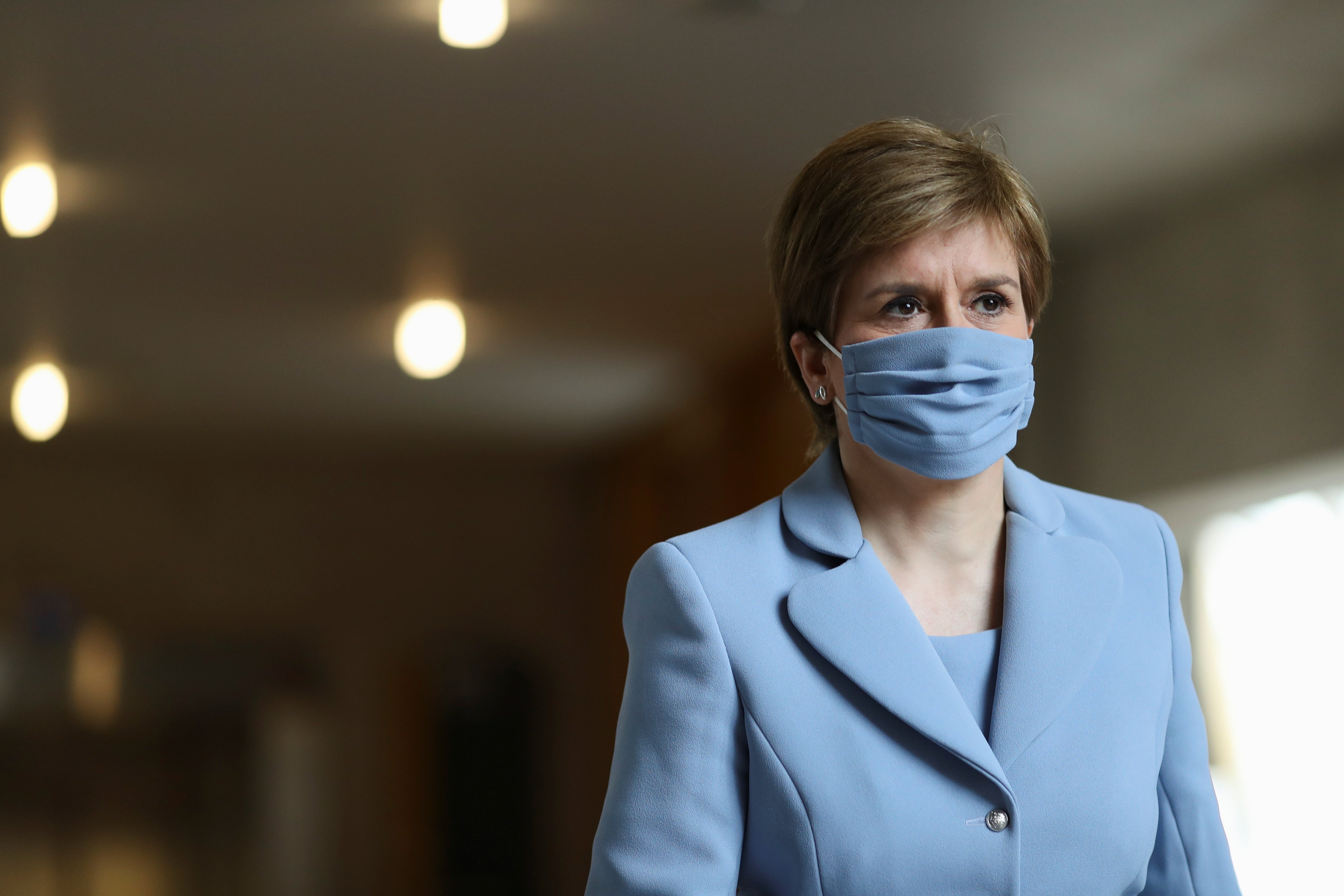Sturgeon keeps Glasgow under restrictions for another week amid ‘uncomfortably high’ case rates
R rate of transmission in Scotland could be as high as 1.3, says first minister

Your support helps us to tell the story
From reproductive rights to climate change to Big Tech, The Independent is on the ground when the story is developing. Whether it's investigating the financials of Elon Musk's pro-Trump PAC or producing our latest documentary, 'The A Word', which shines a light on the American women fighting for reproductive rights, we know how important it is to parse out the facts from the messaging.
At such a critical moment in US history, we need reporters on the ground. Your donation allows us to keep sending journalists to speak to both sides of the story.
The Independent is trusted by Americans across the entire political spectrum. And unlike many other quality news outlets, we choose not to lock Americans out of our reporting and analysis with paywalls. We believe quality journalism should be available to everyone, paid for by those who can afford it.
Your support makes all the difference.Nicola Sturgeon has said it is premature to relax restrictions in Glasgow due to a “fragile” situation and “uncomfortably high” Covid case rates.
The Scottish first minister suggested the R rate of transmission could also be around 1.3 in the country, with Friday’s daily case number the highest since 25 March.
Glasgow is the only part of Scotland remaining under the country’s level 3 lockdown rules, prohibiting non-essential travel out of the area and imposing greater restrictions on socialising, hospitality and businesses.
However, Ms Sturgeon suggested the situation was “stabilising” in the city, suggesting a decision could be made at the end of next week to move the city down to Level 2 restrictions.
Under Level 2 measures, people are allowed to meet socially in groups of up to six people from three households indoors – including overnight stays – and also meet inside restaurants, cafés and pubs.
Travelling outside the area – something not permitted under Level 3 restrictions unless for a permitted reason – is also allowed.
Giving a “frank and balanced” assessment of the national picture, Ms Sturgeon said there was both “cause for concern” and “cause for optimism” in the fight against the disease.
She said case numbers were rising, with numbers increasing by more than a quarter in the past week. With 631 cases reported on Friday, she added it was the “largest daily number we have seen since the 25 March”.
She added: “The latest estimate of R number is that it could now be as high as 1.3. Again I need to put that in context because it is probably quite significantly driven by the situation in Glasgow, given how big the city is as a proportion of Scotland’s overall population.”
Ms Sturgeon went on: “A key factor behind the increases ... is that the new April-02 variant, which we think is more transmissible than most other types of the virus, probably now accounts for 50 per cent or even more of our daily cases.”
“The increase in cases so far does seem to be concentrated in younger age groups and this may indicate that vaccination is having a protective effect for older people which of course we want to see.”
Addressing the situation specifically in Glasgow, the Scottish first minister said: “There are some early signs that the situation is stabilising in Glasgow
But she added: “Weighing up all of these different factors is inevitably really difficult – case numbers in Glasgow – I can’t say anything other than this – they are uncomfortably high, but we are seeing signs of progress.
“The view of the national incident management team is two-fold. Firstly, that it would be premature to move Glasgow out of level 3 immediately this week while the situation remains so fragile.
“However, and secondly, if incidence continues to stabilise and assuming levels of hospitalisation remain reasonably stable, the incident management team has made clear to me that they would support a move to level 2 from the end of next week.”
Join our commenting forum
Join thought-provoking conversations, follow other Independent readers and see their replies
Comments